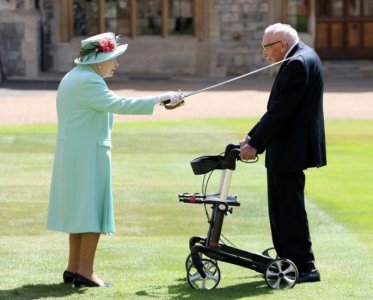the Great Khan
Senior Test Player
- Joined
- Feb 1, 2005
- Runs
- 27,181
- Post of the Week
- 1
quite clear that England is emerging as a basket case when compared to the other nations. Lead by buffoons and imperialist racists.
Follow along with the video below to see how to install our site as a web app on your home screen.
Note: This feature may not be available in some browsers.



Separate households will not be allowed to meet indoors in Greater Manchester, East Lancashire and parts of West Yorkshire from midnight, the government has announced.
Health Secretary Matt Hancock said an "increasing rate of transmission" had been identified in those areas.
"The spread is largely due to households meeting and not abiding to social distancing," he said.
He also said the same restrictions will apply to the city of Leicester.
Millions of people in Greater Manchester, Blackburn with Darwen, Burnley, Hyndburn, Pendle, Rossendale, Bradford, Calderdale, Kirklees will be affected by the tightening of restrictions.
BBC Newsnight correspondent Lewis Goodall said the Department of Health and Social Care had confirmed the restrictions will apply to all indoor settings - so it will mean that no two households should meet in places including pubs and restaurants.
"We take this action with a heavy heart, but we can see increasing rates of Covid across Europe and are determined to do whatever is necessary to keep people safe," Mr Hancock.
It comes nearly four weeks after restrictions were eased and people were allowed to meet indoors.
On Thursday, a further 38 people in the UK died, bringing the total number of Covid-19 associated deaths to 45,999.
And 846 cases were reported - the highest number of cases in a day for a month.
Andy Burnham, the mayor of Greater Manchester - a city with a population of about 2.8m - said there had been a "marked change in the picture" with regard to the spread of Covid-19 in the area.
"We have gone from a falling rate of cases in nearly all of our boroughs last week to a rising rate in nine out of 10 affecting communities across a much wider geography," he said. "In Rochdale, the one borough where cases have fallen, they are still too high."
He said all residents "young and old alike" should "protect each other" by observing the requirements, which will be reviewed weekly.
This means "the more we stick to them, the quicker they will be removed", he said.
"This is a place which prides itself on looking out for each other. We now need to be true to that by not acting selfishly and keeping the health of others in mind at all times."
Jonathan Reynolds, shadow secretary for work and pensions and an MP in the Greater Manchester area, said the figures were showing an increase in infections including in Tameside where positive tests per 100,000 population has gone from 4.9 to 16.3.
'Impact on Eid'
But Labour's MP for Oldham, in Greater Manchester, and shadow transport minister Jim McMahon called for more clarity over what the government was doing to support those in areas affected by new lockdown restrictions.
"On the face of it, for Oldham borough residents this is the same restriction announced already this week, replicated in further areas," he tweeted.
Labour MP for Manchester Central Lucy Powell tweeted: "Trying to get further information about this but it seems two households can no longer meet indoors in GM.
"Particular concerns in certain boroughs but restrictions applying across GM."
First Minister of Scotland Nicola Sturgeon said the decision to ban households in Greater Manchester, East Lancashire and West Yorkshire from meeting indoors was the "right" one.
She said the UK government was "right to act quickly", adding: "This is a sharp reminder that the threat of this virus is still very real."
Miqdaad Versi, spokesman for the Muslim Council of Britain, said the restrictions were likely to have a "large impact" on Muslim families celebrating Eid on Friday.
"Unclear why such short notice provided but important that this message is cascaded as quickly as possible given it goes live within a few hours," he tweeted.

Hmm, lockdown just before Eid?
Mayor of Luton steps down after breaking Covid guidelines
The mayor of Luton has stepped down from his role in the UK, after breaking coronavirus guidelines to attend a gathering in a garden.
Tahir Malik was forced to apologise last month after he was pictured with two other councillors at a large outdoor gathering at a house in Luton.
In a statement after his resignation, he said: "Once again I regret my actions which were below the standard of my position and would like to sincerely apologise to the people of Luton for attending this gathering which was in breach of Covid-19 lockdown restrictions.
"There is no excuse for what I did – I should have known better and I accept full responsibility for my actions."
A new mayor will be appointed on 29 September. They will serve for the remainder of the municipal year.





